Top 10 Warehouse Management System Software Comparison
By Dante Holloway | Published: Current Review | Category: Warehouse Management System Software
About Warehouse Management System Software
Warehouse Management System (WMS) software helps organizations control and optimize day-to-day operations in a warehouse or distribution center. It manages processes from receiving inventory through putaway, picking, packing, and shipping.
Scoring Criteria
- → Feature Set
- → Scalability
- → Ease of Use
- → Integration Capabilities
- → Support & Documentation
- → Pricing/Value
The Best Warehouse Management System Software
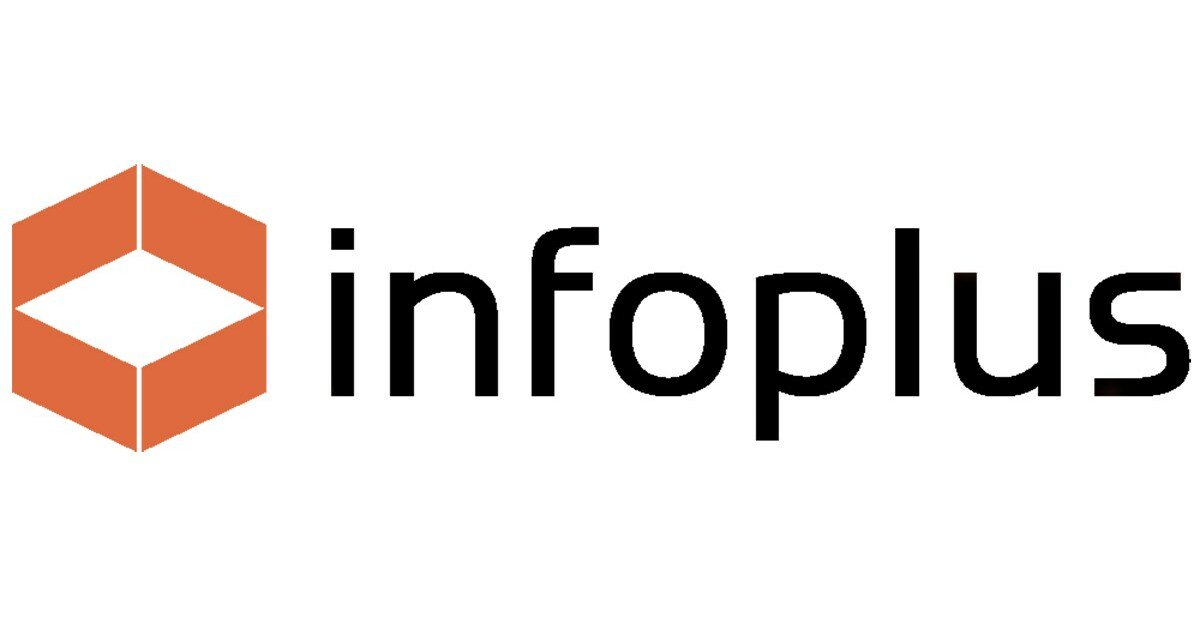 #10
#10
Infoplus Commerce WMS
By Infoplus
A cloud-based WMS specifically designed for e-commerce, 3PL, and wholesale fulfillment operations, emphasizing ease of use and integration.
Platforms & Use Cases
Platforms: Cloud, Mobile
Best For: E-commerce Fulfillment, 3PL Providers, Wholesale Distributors, Businesses needing fast implementation
Key Features
- ✓Streamlined Fulfillment Workflows: Optimized processes for receiving, picking, packing, shipping.
- ✓Pre-built Integrations: Connectors for major e-commerce platforms (Shopify, Amazon) and shipping carriers.
- ✓Inventory Visibility & Control: Real-time tracking, cycle counting, lot control.
- ✓Custom Reporting & Scripting: Ability to tailor reports and automate tasks.
- ✓User-Friendly Interface: Focus on ease of navigation and operation.
Scorecard (Overall: 8.2 / 10.0)
Pricing
Growth
$399.00 / Monthly
- Core WMS
- Limited users/orders
- Standard integrations
Limitations: Order/User limits
Enterprise
$-1.00 / Monthly/Annual (Quote-based)
- Higher/Custom limits
- Advanced features
- Dedicated support
Limitations: Higher cost
Pros
- + Easy to use interface
- + Strong e-commerce and carrier integrations
- + Fast implementation potential
- + Good for mid-market and 3PLs
Cons
- - May lack depth of features found in Tier 1 systems for very complex manufacturing
- - Pricing can increase with volume/features
- - Newer player compared to some established vendors
Verdict
"An excellent cloud-based WMS for e-commerce and 3PL operations prioritizing ease of use, quick integration, and efficient fulfillment."
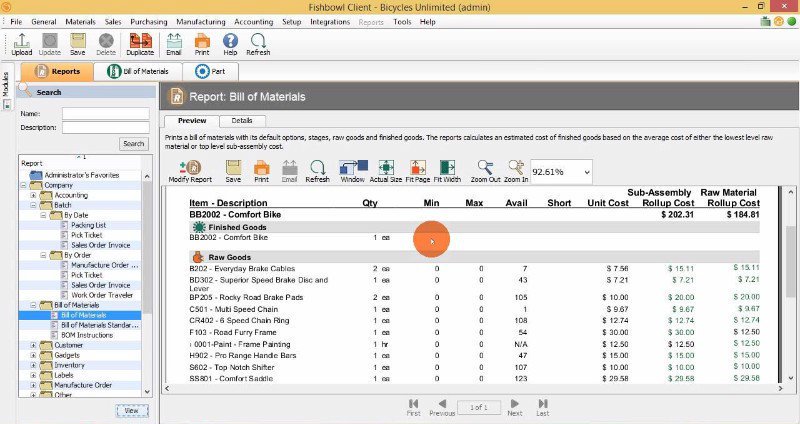 #9
#9
Fishbowl Warehouse
By Fishbowl Inventory
An inventory management solution with WMS features, popular among QuickBooks users and small to medium-sized businesses.
Platforms & Use Cases
Platforms: On-premise (Server), Mobile (Client)
Best For: QuickBooks users, Small to Medium Businesses (SMBs), Light Manufacturing, Wholesale Distribution
Key Features
- ✓QuickBooks Integration: Strong, established integration with QuickBooks Desktop.
- ✓Inventory Control: Tracking across multiple locations, lot/serial tracking, kitting.
- ✓Order Management: Sales order and purchase order processing.
- ✓Basic WMS Features: Mobile barcode scanning for picking, packing, shipping, receiving.
- ✓Manufacturing Orders: Bill of materials and work order management.
Scorecard (Overall: 7.5 / 10.0)
Pricing
Per User License
$-1.00 / One-time (Perpetual, plus optional annual support)
- Core Inventory & WMS
- QuickBooks Integration
- Manufacturing module
Limitations: Primarily on-premise architecture, Less scalable than cloud-native enterprise WMS, Advanced WMS features may be limited
Pros
- + Excellent QuickBooks integration
- + Affordable perpetual license model
- + Good core inventory management features
- + Relatively easy to use for SMBs
Cons
- - Less scalable than enterprise systems
- - Primarily on-premise
- - Lacks some advanced WMS optimization features
- - Mobile app UI could be improved
Verdict
"A strong value proposition for SMBs, especially those using QuickBooks, needing robust inventory control with essential WMS capabilities."
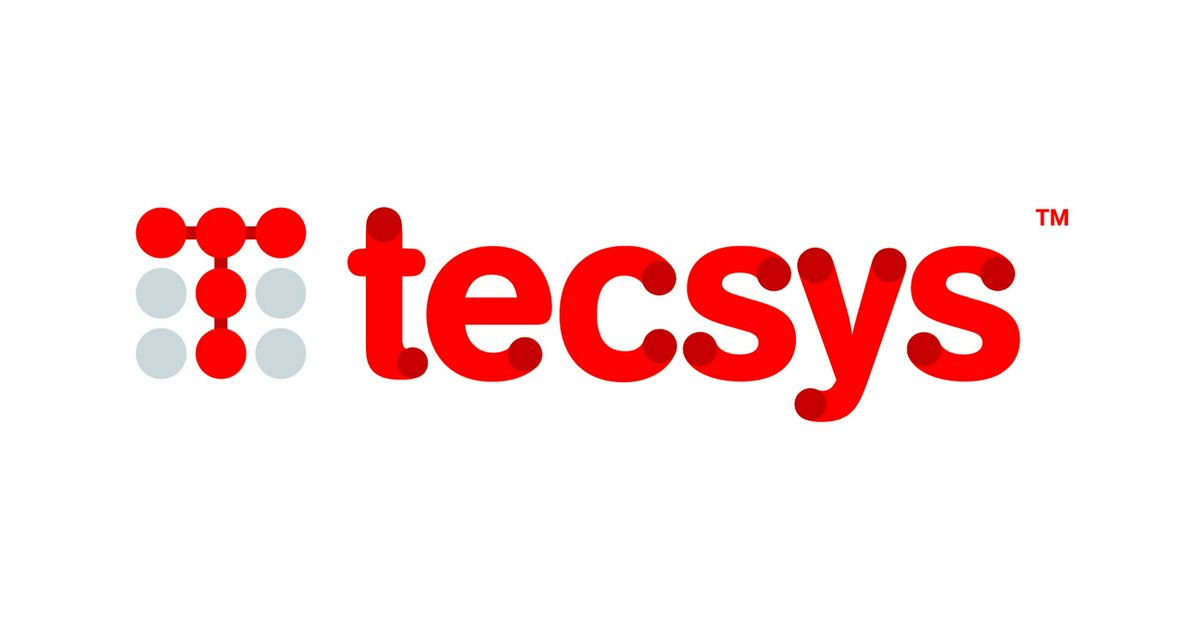 #8
#8
Tecsys WMS
By Tecsys Inc.
A flexible WMS platform catering especially to healthcare, service parts, and complex distribution environments.
Platforms & Use Cases
Platforms: Cloud, On-premise, Mobile
Best For: Healthcare Logistics (Hospital Supply Chain), Service Parts Distribution, Heavy Equipment, Beverage Distribution, 3PL
Key Features
- ✓Industry-Specific Functionality: Tailored features for healthcare (UDI tracking) and service parts (serial tracking, returns).
- ✓Visual Warehousing: Graphical representation of warehouse layout and inventory.
- ✓Omnichannel Fulfillment: Support for various fulfillment models (B2B, B2C, Ship-from-Store).
- ✓Integrated Transportation Management: Capabilities for managing inbound and outbound logistics.
- ✓Point-of-Use Supply Management: Extends inventory control beyond the warehouse (e.g., hospital PAR levels).
Scorecard (Overall: 8.1 / 10.0)
Pricing
Custom
$-1.00 / Varies (Quote-based)
- Core WMS
- Industry-specific modules
- Integration services
- Deployment options
Limitations: Niche focus may mean overkill for simple operations, Pricing depends heavily on scope
Pros
- + Strong expertise in specific verticals (Healthcare, Service Parts)
- + Visual tools aid usability
- + Flexible platform
- + Good integration capabilities
Cons
- - May be less known outside its core industries
- - Can be complex depending on configuration
- - Cost can be high for full suite
Verdict
"An excellent choice for organizations in specific complex industries like healthcare or service parts distribution requiring tailored WMS functionality."
 #7
#7
Softeon WMS
By Softeon
A comprehensive WMS offering broad functionality with a focus on optimization and direct-to-consumer fulfillment.
Platforms & Use Cases
Platforms: Cloud, On-premise, Mobile
Best For: Retail, E-commerce, 3PL, Food & Beverage, Manufacturing
Key Features
- ✓Order Fulfillment Optimization: Advanced algorithms for picking, packing, shipping.
- ✓Resource & Task Management: Optimized labor and equipment utilization.
- ✓Parcel Shipping Integration: Native multi-carrier shipping capabilities.
- ✓Inventory Management: Real-time tracking, cycle counting, putaway strategies.
- ✓Extensibility: Ability to add modules like Yard Management, Labor Management.
Scorecard (Overall: 8.1 / 10.0)
Pricing
Modular Licensing
$-1.00 / Annual (Quote-based)
- Core WMS
- Optional advanced modules
- Cloud or On-premise deployment
Limitations: Less brand recognition than Tier 1 vendors, Implementation requires careful planning
Pros
- + Strong fulfillment and optimization capabilities
- + Good balance of features and configurability
- + Competitive pricing relative to Tier 1
- + Single vendor for WMS, DOM, TMS
Cons
- - Smaller market presence compared to giants
- - Can require significant configuration
- - User interface could be more modern
Verdict
"A solid WMS choice offering robust functionality, particularly for companies focused on fulfillment optimization, often at a better value than top-tier competitors."
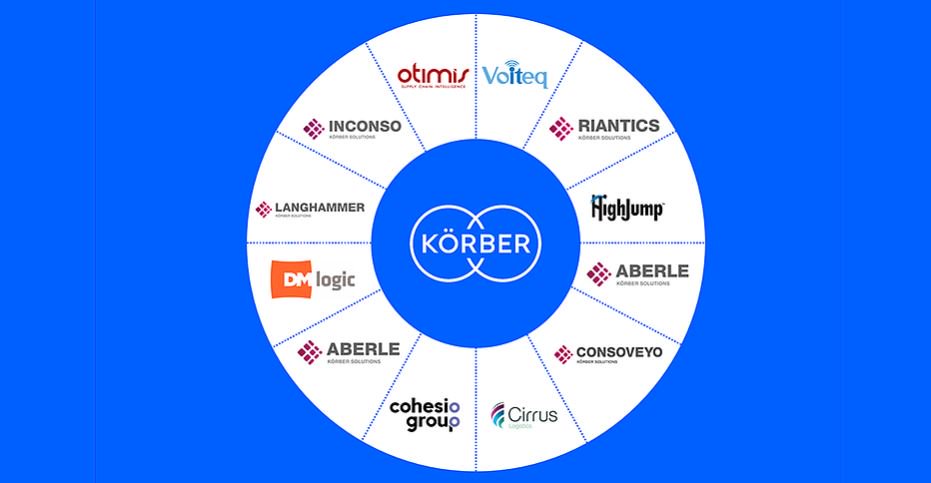 #6
#6
Körber WMS (including HighJump)
By Körber Supply Chain
A highly adaptable WMS solution known for its flexibility and ability to tailor workflows without complex coding, suitable for complex and evolving needs.
Platforms & Use Cases
Platforms: Cloud, On-premise, Mobile
Best For: 3PL, Retail, E-commerce, Wholesale Distribution, Medical Devices
Key Features
- ✓Adaptability & Configurability: Workflow customization through configuration tools.
- ✓Broad Functionality: Covers receiving, putaway, inventory, picking, packing, shipping, labor, yard.
- ✓Voice Directed Picking: Integration with voice technology for hands-free operations.
- ✓Automation Integration: Connects with various MHE and robotics systems.
- ✓Event-Driven Architecture: Real-time responsiveness to warehouse events.
Scorecard (Overall: 8.3 / 10.0)
Pricing
Tiered Licensing
$-1.00 / Varies (Quote-based)
- Core WMS
- Optional modules (Labor, Yard, Automation)
- Cloud or On-premise options
Limitations: Can become complex with extensive customization, Pricing varies significantly with modules and scale
Pros
- + Highly flexible and configurable without coding
- + Strong support for 3PL operations
- + Scalable architecture
- + Good automation and voice integration
Cons
- - Can require significant configuration effort
- - Support quality can vary based on implementation partner
- - UI may seem less modern than some competitors
Verdict
"Excellent choice for businesses needing a highly adaptable WMS to handle unique or evolving processes, particularly strong in the 3PL sector."
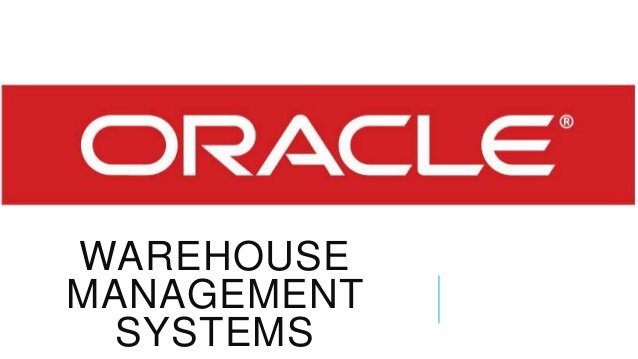 #5
#5
Oracle Warehouse Management Cloud (WMS Cloud)
By Oracle
A scalable cloud WMS solution, part of Oracle's Supply Chain Management Cloud suite, suitable for diverse warehouse operations.
Platforms & Use Cases
Platforms: Cloud, Mobile
Best For: Mid-market to Enterprise, Omnichannel Retail, Manufacturing, 3PL, Integration with Oracle Cloud ERP
Key Features
- ✓End-to-End Inventory Management: Visibility across facilities, advanced cycle counting, task management.
- ✓Configurable Workflows: Adaptable processes for receiving, putaway, picking, packing, shipping.
- ✓Yard and Dock Management: Scheduling and tracking of inbound/outbound trailers.
- ✓Integrated Analytics: Dashboards and reporting for operational insights.
- ✓Mobile Supply Chain Applications: Task execution via handheld devices.
Scorecard (Overall: 8.2 / 10.0)
Pricing
Subscription
$-1.00 / Annual (Quote-based)
- Comprehensive WMS functionality
- Regular cloud updates
- Integration with Oracle SCM Cloud
Limitations: Can be complex, Integration outside Oracle ecosystem may require more effort
Pros
- + Strong integration with Oracle Cloud suite
- + Scalable cloud architecture
- + Comprehensive feature set
- + Regular feature updates
Cons
- - Complexity can be high
- - Best value when used with other Oracle Cloud products
- - Implementation requires expertise
Verdict
"A powerful cloud WMS, particularly strong for organizations utilizing Oracle's broader SCM and ERP cloud offerings."
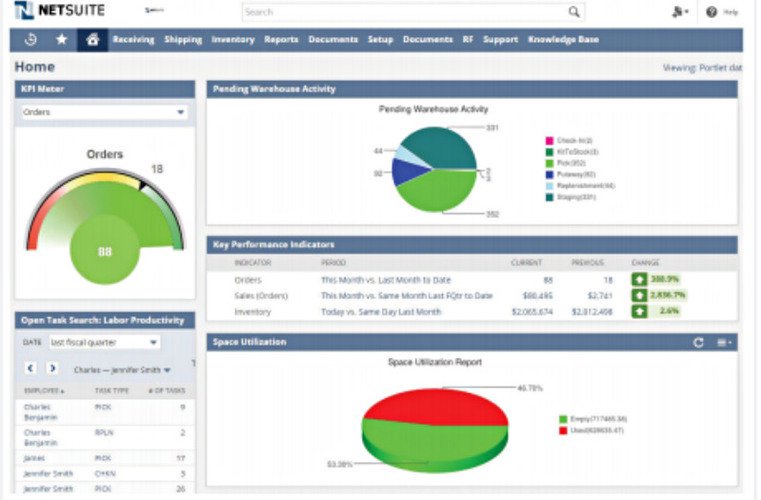 #4
#4
NetSuite WMS
By Oracle NetSuite
A cloud-based WMS that natively integrates with NetSuite ERP, offering unified inventory and order management.
Platforms & Use Cases
Platforms: Cloud, Mobile
Best For: NetSuite ERP users, Mid-market companies, E-commerce Fulfillment, Wholesale Distribution
Key Features
- ✓Native NetSuite Integration: Seamless workflow from order capture to fulfillment within NetSuite.
- ✓Mobile RF Support: Real-time task management on handheld devices.
- ✓Inventory Control: Bin management, cycle counting, lot/serial tracking.
- ✓Order Fulfillment Strategies: Wave planning, zone picking, multi-order picking.
- ✓Integrated Shipping: Connects with major carriers for label printing and tracking.
Scorecard (Overall: 8.2 / 10.0)
Pricing
Add-on Module
$-1.00 / Annual (Quote-based, requires NetSuite ERP)
- Core WMS functions
- Mobile access
- Reporting within NetSuite
Limitations: Requires NetSuite ERP subscription, May lack some advanced features of standalone Tier 1 WMS
Pros
- + Excellent integration with NetSuite ERP
- + Unified business platform
- + Good mobile functionality
- + Relatively easier implementation within NetSuite
Cons
- - Tied to the NetSuite ecosystem
- - May not be as feature-rich as top-tier standalone WMS for highly complex needs
- - Pricing dependent on NetSuite license
Verdict
"Ideal for companies already using or planning to use NetSuite ERP, providing seamless WMS capabilities within a unified cloud platform."
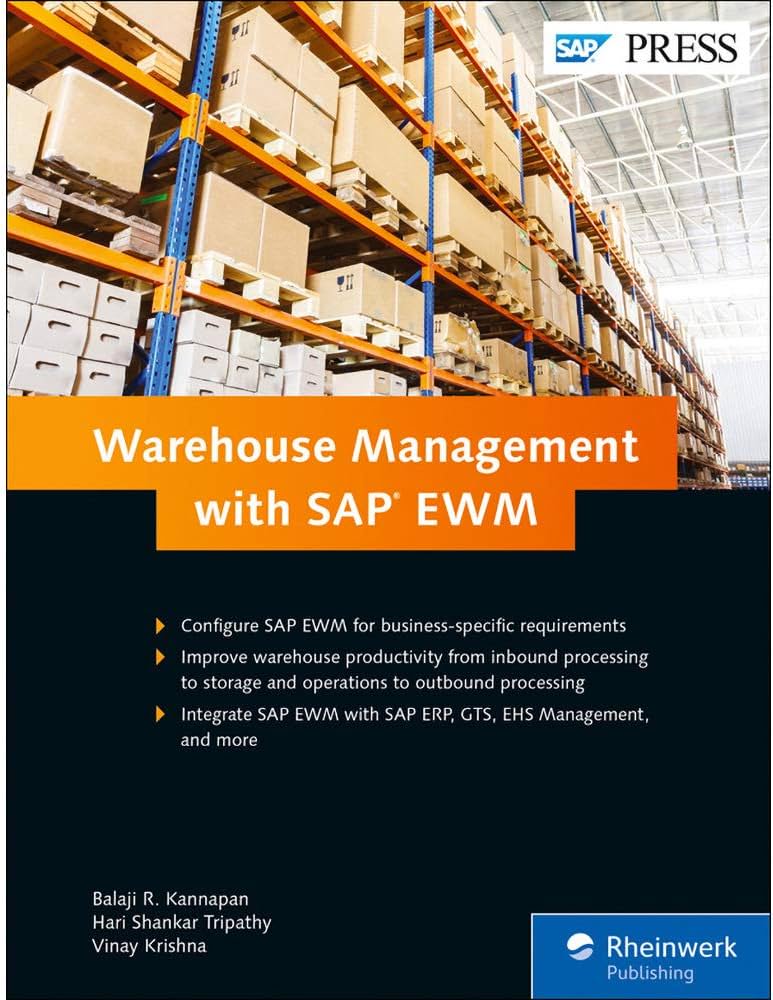 #3
#3
SAP Extended Warehouse Management (EWM)
By SAP
An integrated WMS within the SAP ecosystem, offering robust functionality for complex logistics and supply chain processes.
Platforms & Use Cases
Platforms: Cloud, On-premise, Mobile
Best For: Companies using SAP ERP, Large Scale Distribution, Manufacturing Warehousing, Automated Warehouses
Key Features
- ✓Deep SAP Integration: Seamless data flow with SAP S/4HANA and other SAP modules.
- ✓Advanced Warehousing Functions: Slotting, wave management, cross-docking, value-added services.
- ✓Material Flow System (MFS): Direct integration with warehouse automation equipment.
- ✓Quality Management Integration: Built-in checks and processes during receiving and storage.
- ✓Labor Management: Monitoring and optimization of workforce tasks.
Scorecard (Overall: 8.3 / 10.0)
Pricing
Integrated (S/4HANA)
$-1.00 / Varies (Quote-based, part of SAP license)
- Basic & Advanced WMS features
- Embedded analytics
- Direct ERP integration
Limitations: Best suited for existing SAP customers, Complexity tied to SAP ecosystem
Decentralized
$-1.00 / Varies (Quote-based)
- Can connect to non-SAP ERPs
- High scalability
- Full EWM feature set
Limitations: Complex integration outside SAP, Significant implementation effort
Pros
- + Unmatched integration for SAP environments
- + Highly capable for complex and large operations
- + Strong automation control (MFS)
- + Robust feature set
Cons
- - Complexity and cost, especially for non-SAP users
- - Steep learning curve
- - Implementation requires specialized SAP expertise
Verdict
"The go-to choice for organizations heavily invested in the SAP ecosystem needing a powerful, integrated WMS."
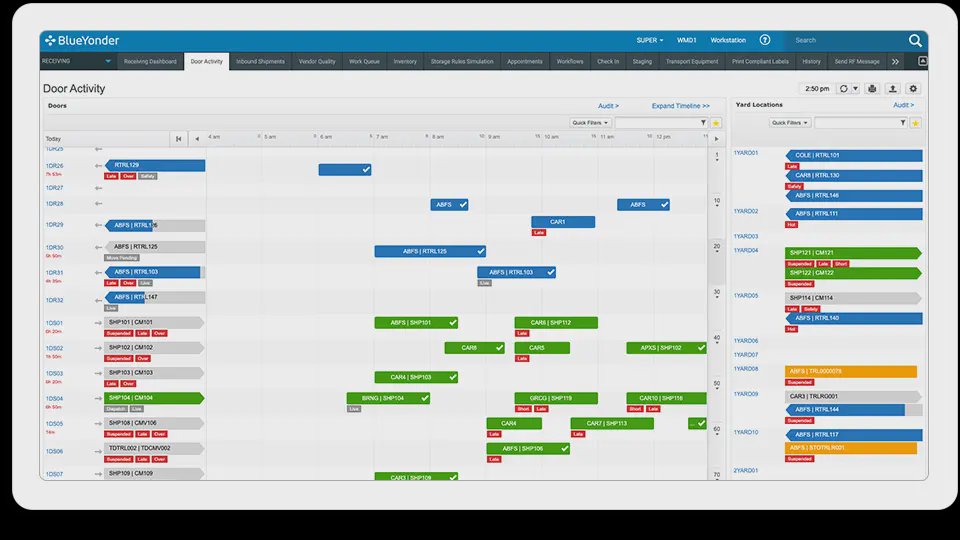 #2
#2
Blue Yonder Warehouse Management
By Blue Yonder
A leading WMS focused on optimizing warehouse processes through AI/ML, supporting complex supply chain needs.
Platforms & Use Cases
Platforms: Cloud, On-premise, Mobile
Best For: Large Enterprises, 3PL, Manufacturing, Retail, Cold Chain
Key Features
- ✓AI-Powered Optimization: Intelligent task management, labor forecasting, slotting.
- ✓Comprehensive Inventory Control: Serial/lot tracking, catch weight, quality control.
- ✓Advanced Fulfillment: Omnichannel support, complex picking logic, value-added services.
- ✓Labor Management System (LMS): Detailed performance monitoring and incentives.
- ✓Extensibility: Strong integration framework and customization options.
Scorecard (Overall: 8.5 / 10.0)
Pricing
Enterprise
$-1.00 / Annual (Quote-based)
- Full WMS capabilities
- AI/ML features
- Flexible deployment options
- Strong integration support
Limitations: High implementation cost and complexity, May require specialized expertise
Pros
- + Powerful AI/ML capabilities for optimization
- + Highly configurable and scalable
- + Strong focus on labor management
- + Supports very complex operations
Cons
- - Significant investment required
- - Implementation can be lengthy
- - User interface can feel dated for some modules
Verdict
"A top contender for large organizations needing advanced optimization, AI-driven insights, and extensive configurability."
View Top Ranked Software
Watch a short ad to unlock the details for the #1 ranked software.
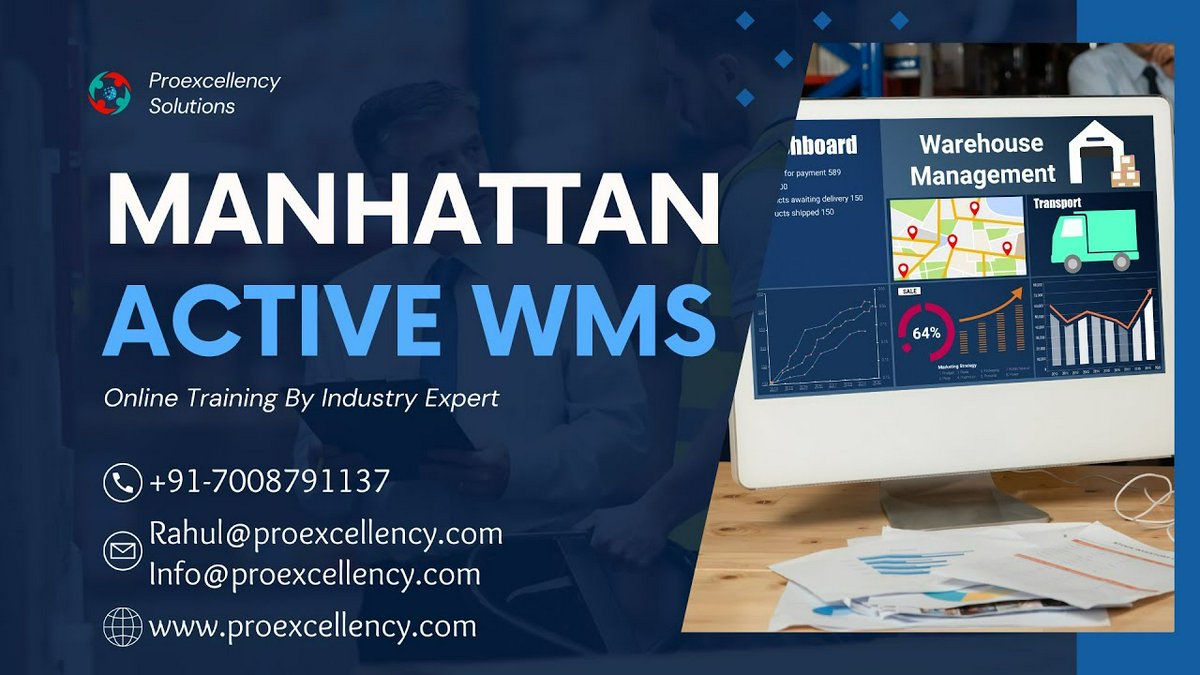 #1
#1
Manhattan Active Warehouse Management
By Manhattan Associates
A comprehensive, cloud-native WMS designed for complex, high-volume operations, emphasizing adaptability and automation.
Platforms & Use Cases
Platforms: Cloud, Mobile
Best For: Large Enterprises, Retail Distribution, Omnichannel Fulfillment, 3PL, Manufacturing
Key Features
- ✓Inventory Management: Real-time visibility, slotting optimization, cycle counting.
- ✓Order Fulfillment: Advanced picking strategies (wave, batch, zone), packing, shipping.
- ✓Labor Management: Performance tracking, task interleaving, workforce planning.
- ✓Automation & Robotics Integration: Built-in support for various warehouse automation systems.
- ✓Yard Management: Dock scheduling, trailer check-in/out.
Scorecard (Overall: 8.6 / 10.0)
Pricing
Enterprise
$-1.00 / Annual (Quote-based)
- Full WMS suite
- Cloud-native architecture
- Regular updates
- Extensive configuration
Limitations: Requires significant investment, Complex implementation
Pros
- + Highly scalable and feature-rich
- + Strong automation integration
- + Cloud-native benefits (updates, uptime)
- + Industry leader for complex operations
Cons
- - Can be complex to implement and manage
- - Higher cost compared to simpler solutions
- - Steeper learning curve
Verdict
"Best-in-class for large, complex warehouse operations needing advanced features and high scalability."

Final Thoughts
The WMS market offers diverse solutions, from comprehensive Tier 1 systems like Manhattan Active WM, Blue Yonder, and SAP EWM designed for complex, large-scale operations, to integrated solutions like NetSuite WMS and Oracle WMS Cloud, flexible platforms like Körber WMS, and specialized or SMB-focused options like Tecsys, Softeon, Infoplus, and Fishbowl. Selection depends heavily on operational complexity, scale, existing ERP systems, industry-specific needs, and budget.